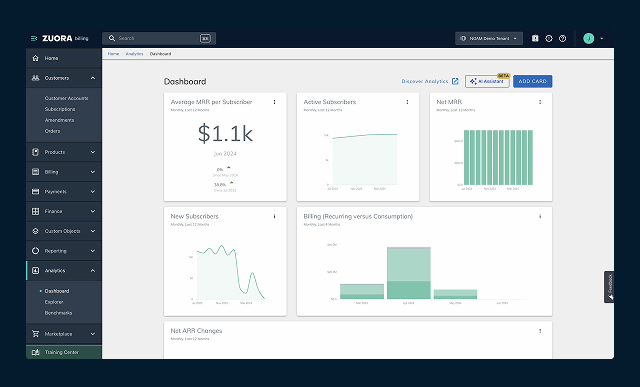There’s a thorny confluence point between ERP and low-code software.
On the one hand, there are low-code platform specialist purists i.e. company’s known for their low-code (and sometimes no-code) declarative model software that provides pre-architected templates, accelerators and intelligence-driven shortcuts to speed up the definable, repeatable and often more repeatable elements of code construction.
On the other hand, there are ERP players, all of which now appear to have identified (or quite rapidly developed) a part of their total IT stack that has a high degree of autonomous operation advantage in it, which could therefore now pass as low-code tooling.
This is not to suggest that ERP (and other enterprise software players from the database world and beyond) are now low-code-washing parts of their technologies in order to get in on the act, this is merely to suggest that there is pure low-code… and there is other.
Arguably very much among the core cognoscenti in the low-code space is Appian. Long known for its low-code platform and tools designed to speed certain specific elements of the software development process, Appian has always been clear to explain its toolset’s use case at the hardcore software engineering end of the spectrum. For the most part, this not drag-and-drop stuff.
Low-code for ESG in ERP
Now turning its mission towards low-code technology’s role in Environmental, Social, and Governance (ESG) programs, Appian is now working to highlight its platform’s competencies in data management related tasks for ESG, many of which will naturally fall under the wider purview of the ERP function.
Given the ERP team’s centralized responsibility for data control, management and reporting, it should come as no surprise to find the team now extra-stressed with data workloads pertaining to ESG initiatives, many of which will be driven by governmental regulatory pressures.
But gathering ESG data is a challenge. For wide-ranging environmental issues in particular, enterprises will need to straddle information streams emanating from databases, data lakes and data resources located on sensors throughout the Internet of Things (IoT) across smart cities.
With so many of these tasks feeding into an organization’s wider sustainability initiatives, the ERP ESG responsibility ahead of us is big – and this is the pain point that Appian seeks to address with some of the more recent developments across its platform.
“It has never been more urgent for organizations to prioritize sustainability,” said Michael Heffner, vice president, solutions and industry go-to-market at Appian. “Customers, investors and financial auditors are increasingly making decisions based on a company’s commitment, transparency and auditability regarding environmental and social impact. Low-code provides the speed, data management and visibility organizations need to understand their current position, automate for improvement and measure the results.”
Accelerating net zero carbon
On the [hopefully mostly electric] road to net zero carbon goals, Appian explains how low-code advancements can now help a business to improve its ESG ratings by integrating data sources, adapting to evolving regulations, ensuring visibility, control and auditability and by embedding ESG within operational processes.
Why is this such an urgent imperative? Because, says Appian, every type of business in every vertical is now under increasing pressure from financial regulators, investors, governments and customers/consumers to strengthen their internal ESG systems.
But this is no overnight fix; we need to be able to skill up software engineers and data management professionals for this kind of work. Appian explains that it is fully aware of the challenge ahead and has created its #lowcode4all initiative to help bolster skills. This free program is designed to provide access to low-code education resources and certification to drive career advancement and opportunities for the next generation of low-code developers.
“The global economy needs more developers. The ease of learning low-code enables people to shift careers, update skills, and improve their circumstances. Appian is committed to making low-code careers available for all,” said Appian CEO Matt Calkins.
There is no formalized ERP ESG sub-department, workplace role or promotional T-shirt yet, but there could soon




